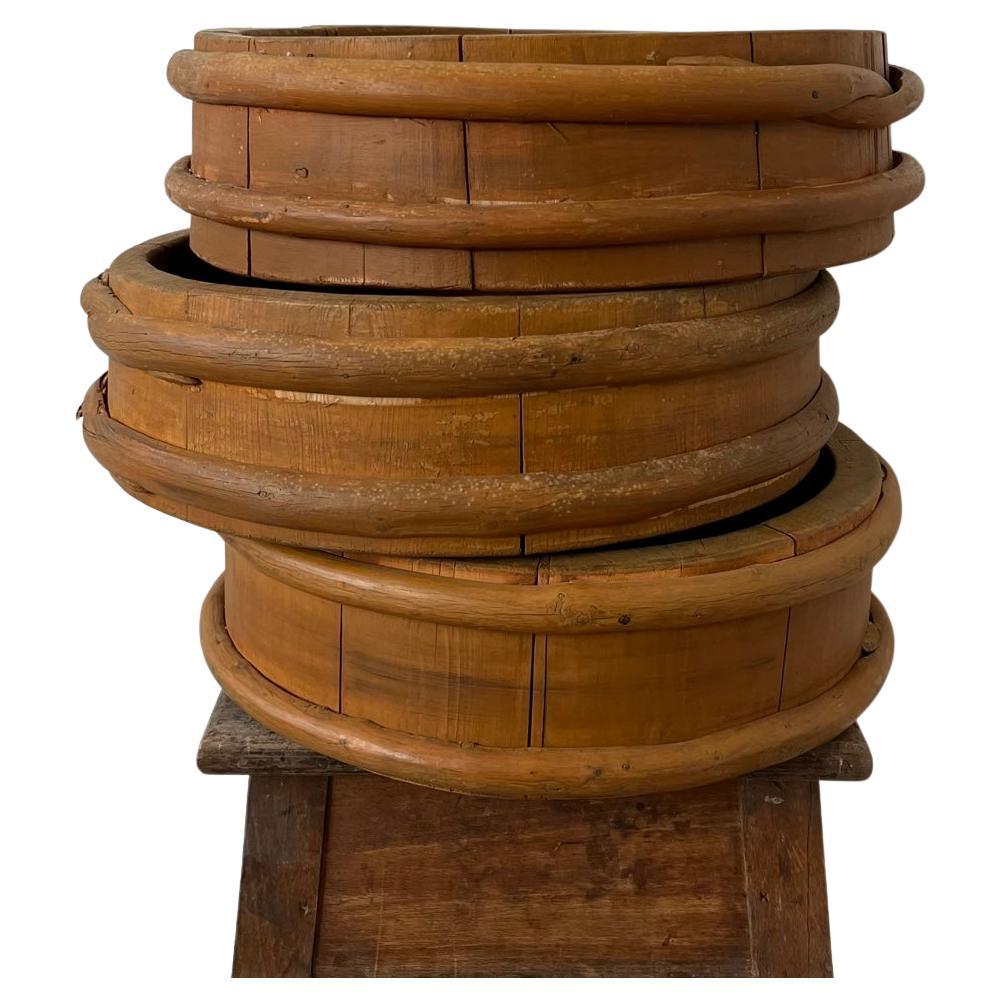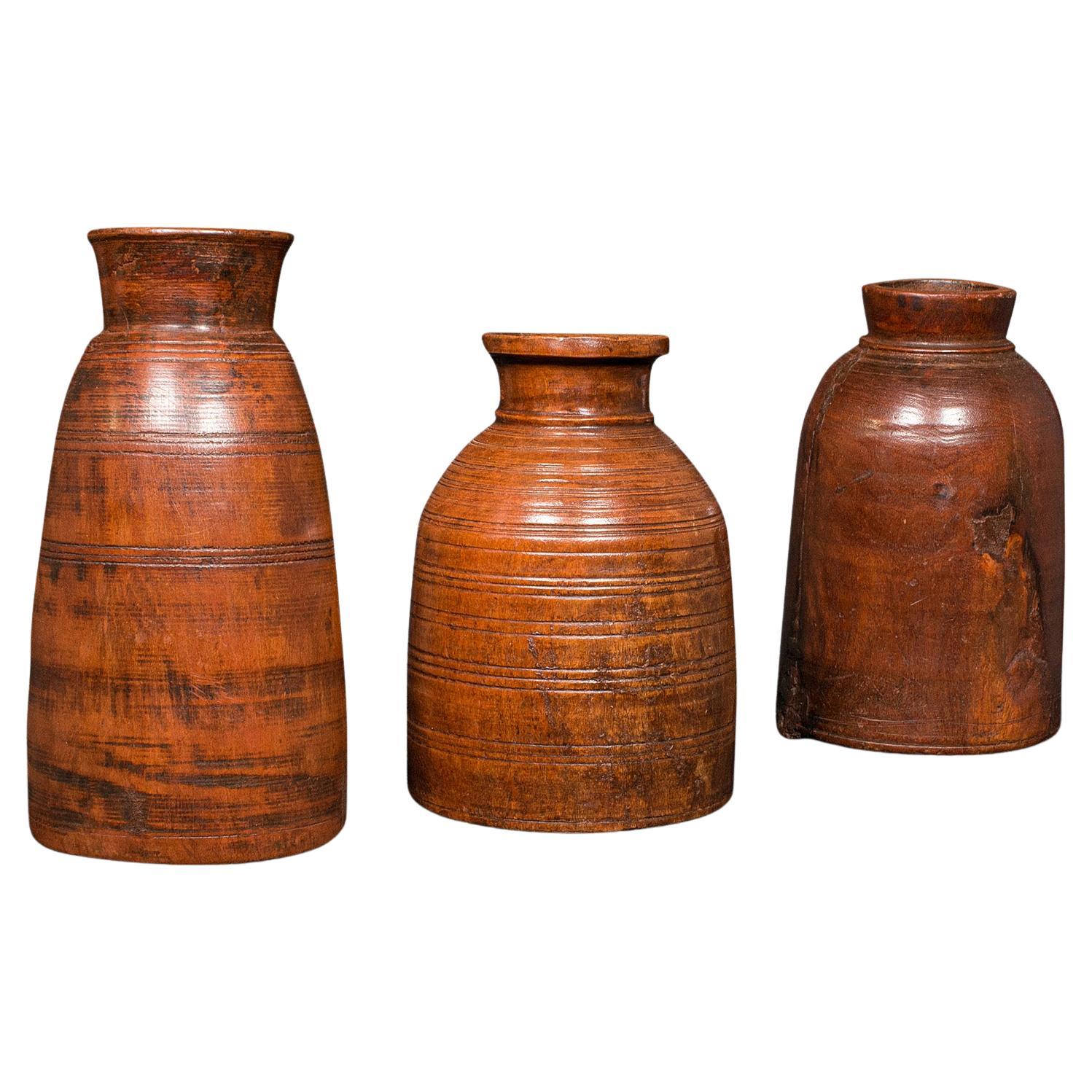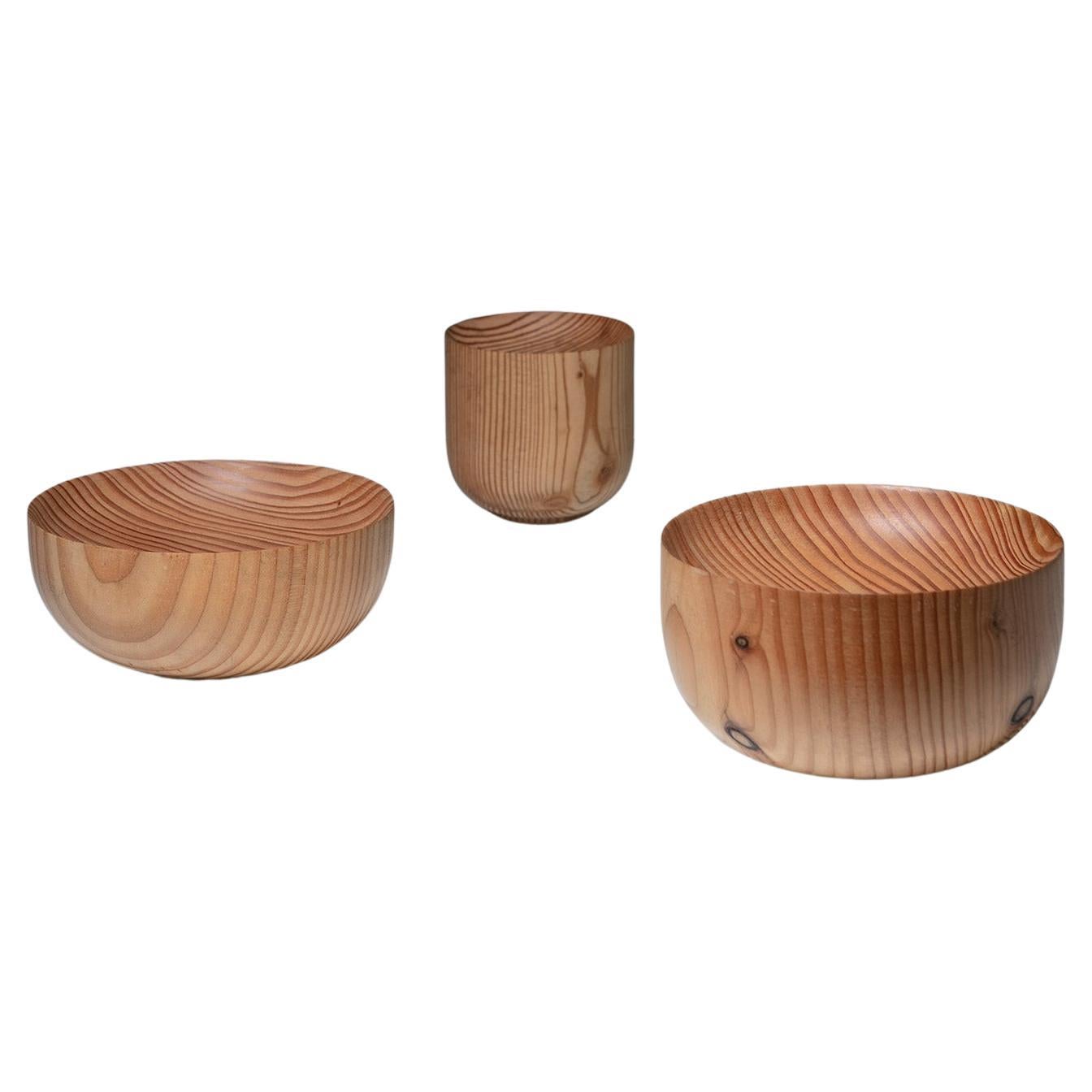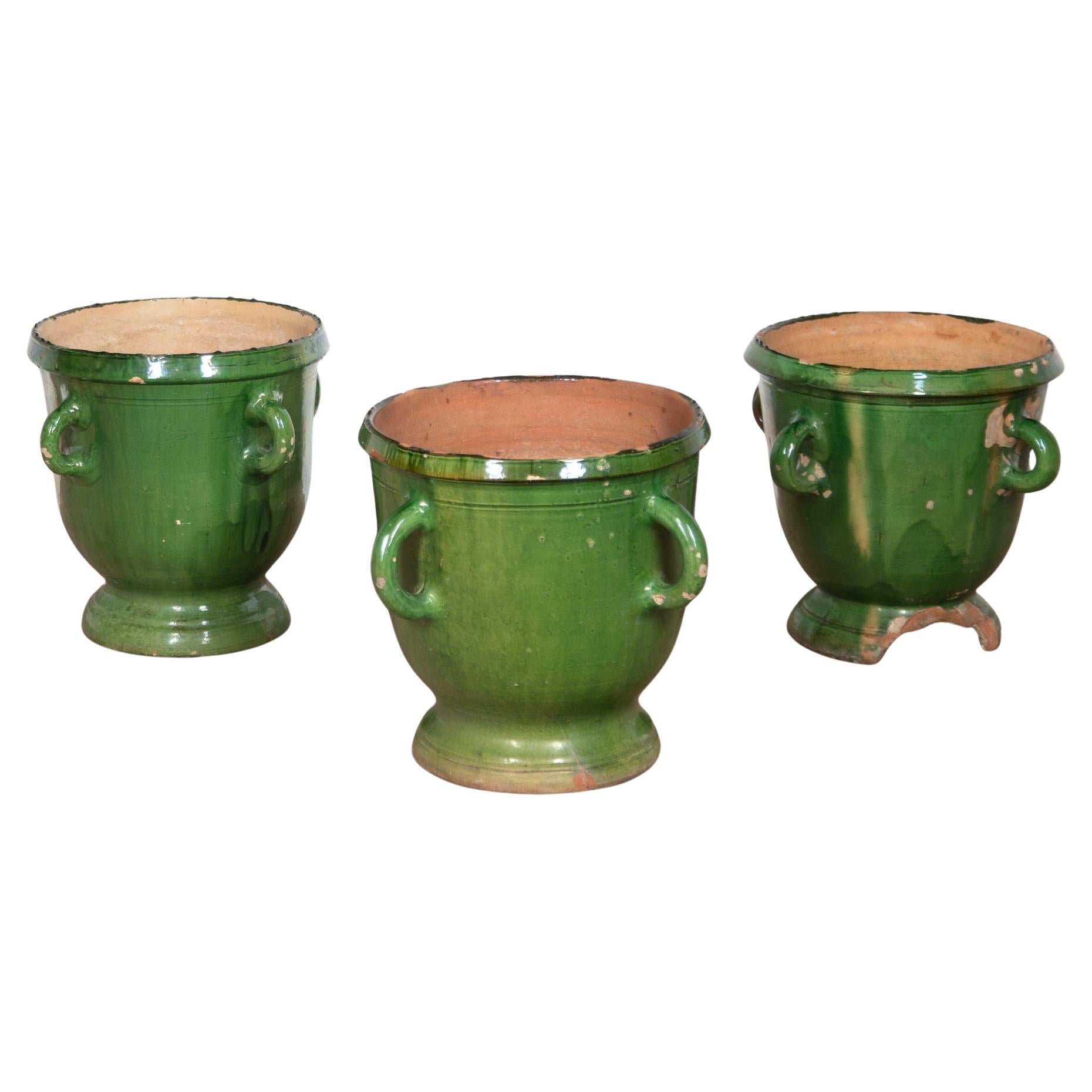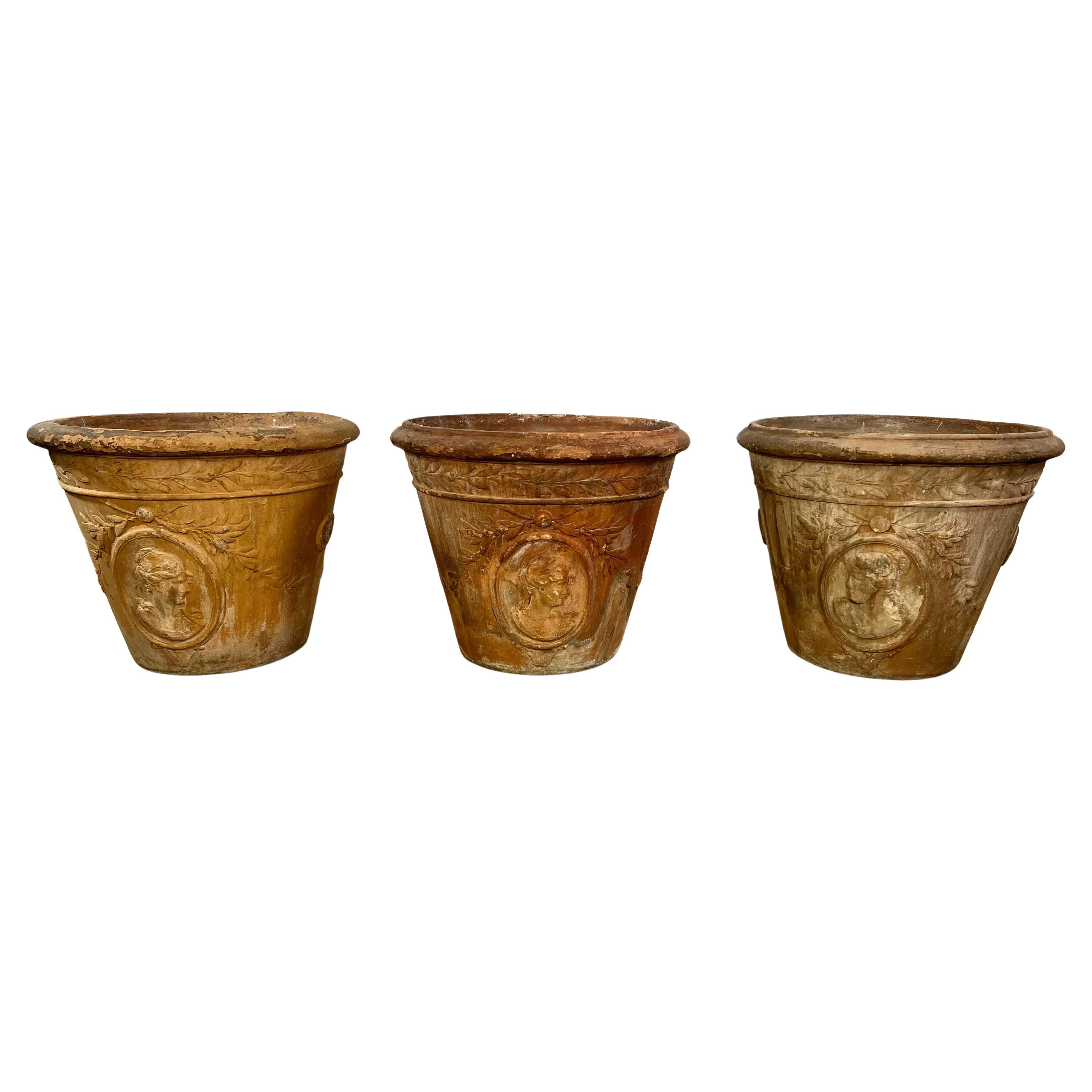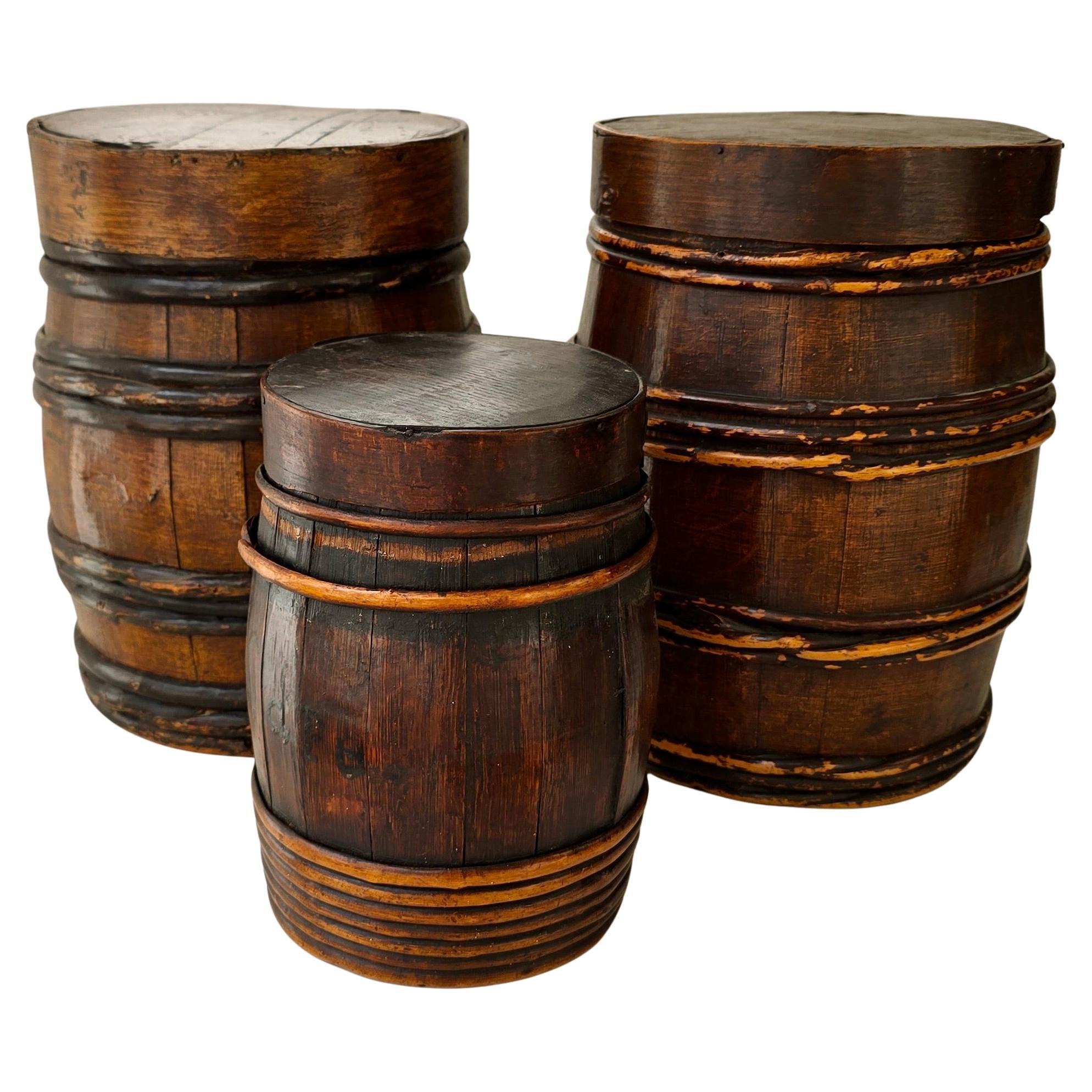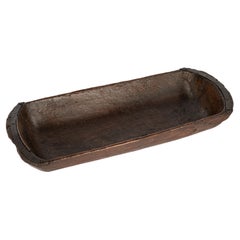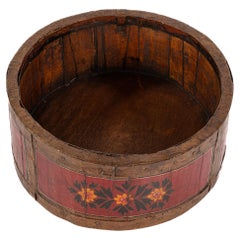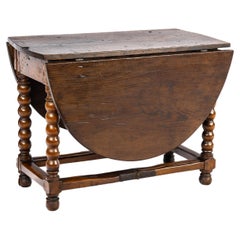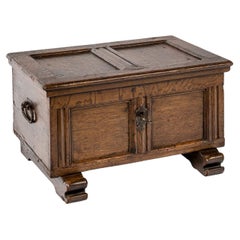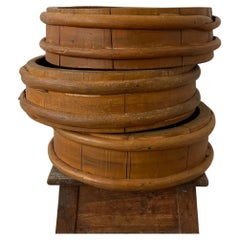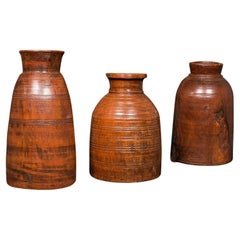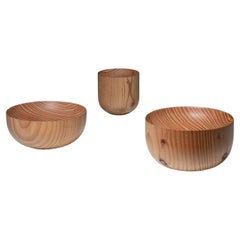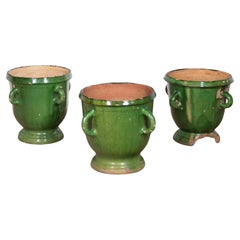Items Similar to Set of Three Antique Solid Warm brown Oak Cheesemould or as planter or pot
Video Loading
Want more images or videos?
Request additional images or videos from the seller
1 of 21
Set of Three Antique Solid Warm brown Oak Cheesemould or as planter or pot
$1,092.75per set
$1,365.94per set20% Off
£814.57per set
£1,018.22per set20% Off
€920per set
€1,150per set20% Off
CA$1,523.15per set
CA$1,903.93per set20% Off
A$1,655.40per set
A$2,069.25per set20% Off
CHF 874.81per set
CHF 1,093.52per set20% Off
MX$20,026.76per set
MX$25,033.45per set20% Off
NOK 10,895.18per set
NOK 13,618.98per set20% Off
SEK 10,291.18per set
SEK 12,863.97per set20% Off
DKK 7,006.22per set
DKK 8,757.77per set20% Off
About the Item
This set of antique cheese molds was crafted at the beginning of the 20th century, around 1900. Made from the finest quality quarter-sawn European summer oak, the molds were reinforced with steel hoops. In recent decades, these molds have been repurposed as decorative objects, often used as planters or bowls. The cheese molds were stained a warm brown and finished with several layers of lacquer and wax. On the underside of the largest mold, there's a stamp from the cheesemaker or the mold manufacturer, though it's only partially visible.
The largest mold has a diameter of 15.75 inches and is 7.48 inches high. The middle mold is 13.98 inches in diameter and has a height of 6.69 inches. The smallest bowl is 7.87 inches in diameter and 7.87 inches high.
These molds are not only beautiful bowls but are also perfect for use as planters or decorative containers. They are sturdy, clean, and ready for immediate use.
To give you a sense of how these molds were originally used in the cheesemaking process, here's a brief overview:
**Step 1: Acidification and Coagulation**
To make one kilogram of cheese, you need about 10 liters of milk. The milk is first heated, and then a starter culture and rennet are added. The starter culture consists of bacteria that help preserve the cheese and give it its delicious flavor through a process called fermentation. Rennet causes the solids in the milk to clump together, allowing it to take on a solid form.
**Step 2: Cutting the Curds**
Once the milk has coagulated into a thick mass, it's cut into small pieces. This process releases a yellowish liquid called whey. The solid pieces are known as curds, which form the foundation of the cheese. The curds are washed twice with warm water to help firm them up.
**Step 3: Pressing**
The washed curds are then placed into cheese molds under a press. This gives the cheese its desired shape and helps form a good, solid rind. Cheeses don't always have the same round shape; there are rectangular cheeses ("hotel blocks"), heart-shaped cheeses, small cheeses, giant cheeses, and many more. The curds can be pressed into a variety of forms.
**Step 4: Brining**
After pressing, the cheese is placed in a saltwater brine. This bath helps firm up the cheese and enhances its shelf life and flavor.
**Step 5: Coating**
After the brining process, the cheeses are left to drain. Once dry, they are placed on wooden shelves in a cheese storage room. Young cheeses are turned daily, while older cheeses are turned every two weeks. During this time, the cheese is coated to prevent mold growth and drying out.
- Dimensions:Height: 7.49 in (19 cm)Diameter: 15.75 in (40 cm)
- Sold As:Set of 3
- Materials and Techniques:
- Place of Origin:
- Period:
- Date of Manufacture:circa 1900
- Condition:Wear consistent with age and use.
- Seller Location:Casteren, NL
- Reference Number:1stDibs: LU970941732492
About the Seller
4.9
Platinum Seller
Premium sellers with a 4.7+ rating and 24-hour response times
Established in 1975
1stDibs seller since 2013
451 sales on 1stDibs
Typical response time: <1 hour
- ShippingRetrieving quote...Shipping from: Casteren, Netherlands
- Return Policy
Authenticity Guarantee
In the unlikely event there’s an issue with an item’s authenticity, contact us within 1 year for a full refund. DetailsMoney-Back Guarantee
If your item is not as described, is damaged in transit, or does not arrive, contact us within 7 days for a full refund. Details24-Hour Cancellation
You have a 24-hour grace period in which to reconsider your purchase, with no questions asked.Vetted Professional Sellers
Our world-class sellers must adhere to strict standards for service and quality, maintaining the integrity of our listings.Price-Match Guarantee
If you find that a seller listed the same item for a lower price elsewhere, we’ll match it.Trusted Global Delivery
Our best-in-class carrier network provides specialized shipping options worldwide, including custom delivery.More From This Seller
View AllAntique 19th century Dutch Rustic brown stained solid carved elm grain trough
Located in Casteren, NL
This beautiful rustic grain trough originates from the Netherlands and was crafted around 1880. Expertly carved from a single piece of elm wood, the trough bears many signs of wear a...
Category
Antique Late 19th Century Dutch Decorative Bowls
Materials
Steel
$969 Sale Price
20% Off
Antique 19th century traditional Dutch hand painted grain measure container bowl
Located in Casteren, NL
This beautifully crafted grain measure was made in Hindeloopen, the Netherlands, toward the end of the 19th century, around 1890. Originally used as a grain scoop, this container was...
Category
Antique Late 19th Century Dutch Decorative Bowls
Materials
Steel
$893 Sale Price
20% Off
Antique 17h Century Spanish Chestnut Warm Brown Gateleg or Dropleaf Table
Located in Casteren, NL
On offer here, is an exquisite piece of history—an antique gateleg or dropleaf table originating from Spain, dating back to the late 17th century, circa 1680. This remarkable table i...
Category
Antique Late 17th Century Spanish Baroque Drop-leaf and Pembroke Tables
Materials
Chestnut
$6,176 Sale Price
20% Off
Small Antique Early 18th Century German Oak Paneled Trunk or Coffer
Located in Casteren, NL
This small table trunk was made in Germany in the early 18th century. Both front and lid have two flat recessed panels with molded trim. It has the original forged steel keyplate, lo...
Category
Antique Mid-18th Century German Blanket Chests
Materials
Steel
Antique 19th Century German Solid Oak Dome Top Chest Trunk Coffer Box
Located in Casteren, NL
This beautiful trunk was made in western Germany in the early 19th century circa 1800. It was made completely in the finest quality European summer oak. The dovetail joints connectin...
Category
Antique Early 19th Century German Blanket Chests
Materials
Brass, Steel
$3,800 Sale Price
20% Off
Early 20th Century Round Indian Traditional Carved Grinder or Chakki Table
Located in Casteren, NL
This beautiful hand-carved solid teak Grinder or Chakki table was made in India circa 1910. The table was richly decorated with hand-carved geometric deta...
Category
Early 20th Century Indian Coffee and Cocktail Tables
Materials
Iron
You May Also Like
Set of Three Antique Swedish Wooden Primitive Bowls
Located in London, GB
A set of three Swedish bowls.
19th century, Sweden.
Stained painted milk bowl.
Likely pine.
Price is for the set of three.
Location: London Gallery.
Dimension...
Category
Antique Late 19th Century Swedish Decorative Bowls
Materials
Pine
Trio of Antique Tribal Vases, Indian, Hardwood, Accent Jar, Rustic, Victorian
Located in Hele, Devon, GB
This is a trio of antique tribal vases. An Indian, hardwood accent jar or urn with rustic taste, dating to the late Victorian period, circa 1900.
Fascinating hand finished appeal ...
Category
Antique Late 19th Century Indian Rustic Decorative Bowls
Materials
Hardwood
Set of Three Solid Wood Bowls, Italy, 1970s
Located in Milan, IT
Set of three solid larch wood bowls.
Gorgeous proportions and patina
Category
Vintage 1970s Italian Decorative Bowls
Materials
Wood
Set of Three Large French Castelnaudary Planters
Located in Gloucestershire, GB
Collection of three large green-glazed 19th Century French Castelnaudary four handled planters.
These pots have come from a private garden in Apt and would have originally graced eac...
Category
Antique 19th Century French Country Planters, Cachepots and Jardinières
Materials
Terracotta
$4,843 / set
Set of 3 Decorative Urns, Early 20th Century – 18th-Century inspired
Located in PARIS, FR
This rare set of three large patinated terracotta urns, crafted in the early 20th century, is directly inspired by the elegant aesthetics of 18th-century classical garden design. Each urn features a raised medallion with a female profile, reminiscent of antique cameo jewelry...
Category
Early 20th Century French Other Planters and Jardinieres
Materials
Terracotta
Set of Three Antique Dutch/Flemish Herring Barrels with Original Inscriptions
Located in Antwerp, BE
Set of Three Antique Dutch/Flemish Herring Barrels with Original Inscriptions, Late 19th Century
A rare set of three antique wooden herring barrels (haringtonnen), originating from the Netherlands or Flanders, late 19th century. These charming folk art barrels were traditionally used in fish shops and village groceries to store and sell salted herring.
Each barrel is made of wooden staves bound with wooden hoops and comes with its original removable lid. Remnants of hand-painted inscriptions and price markings remain visible, including “18 centen den ½ kilo” (18 cents per half kilo), referring to the historical retail price of herring. The barrels show a rich patina and authentic wear consistent with use and age.
Such early shop fittings and objects of everyday folk culture are increasingly rare and today make wonderful decorative accents. Perfect for collectors of maritime antiques, rustic interiors, and antique kitchenalia.
Barrel 1: Ø 31 cm (12.2 in) x H 23 cm (9 in)
Barrel 2: Ø 30 cm (11.8 in) x H 23 cm (9 in)
Barrel 3: Ø 23 cm (9 in) x H 16 cm (6.3 in)
Period: Late 19th Century
Place of Origin: Netherlands / Flanders
Condition: Good antique condition with wear, scratches, and paint losses consistent with age and use. Lids fit loosely, as typical for old coopered barrels.
Unmatched on 1stdibs – no other Dutch or Flemish herring barrels are currently available, making this complete set exceptionally rare.
Antique herring barrels, antique haringtonnen, Dutch folk art, Flemish folk art, 19th century barrels, rustic storage containers, antique wooden barrels...
Category
Antique Late 19th Century Dutch Folk Art Decorative Baskets
Materials
Wood
More Ways To Browse
Antique Oak Bedroom Sets
Cheese Press
Antique Cheese Press
Cheese Drain
Antique Cheese Molds
Cheese Mold
Murano Ashtray Gold Fleck
Murano Pink Bubble Bowl
Murano Purple Shell
Quartz Tray
Silver Candy Basket
Tiffany Favrile Bowl
Vallauris Fat Lava
Yellow Ware Seaweed
Agate Carved Bowl
Archimede Seguso Bullicante
Archimede Seguso Geode
Bali Bowl
